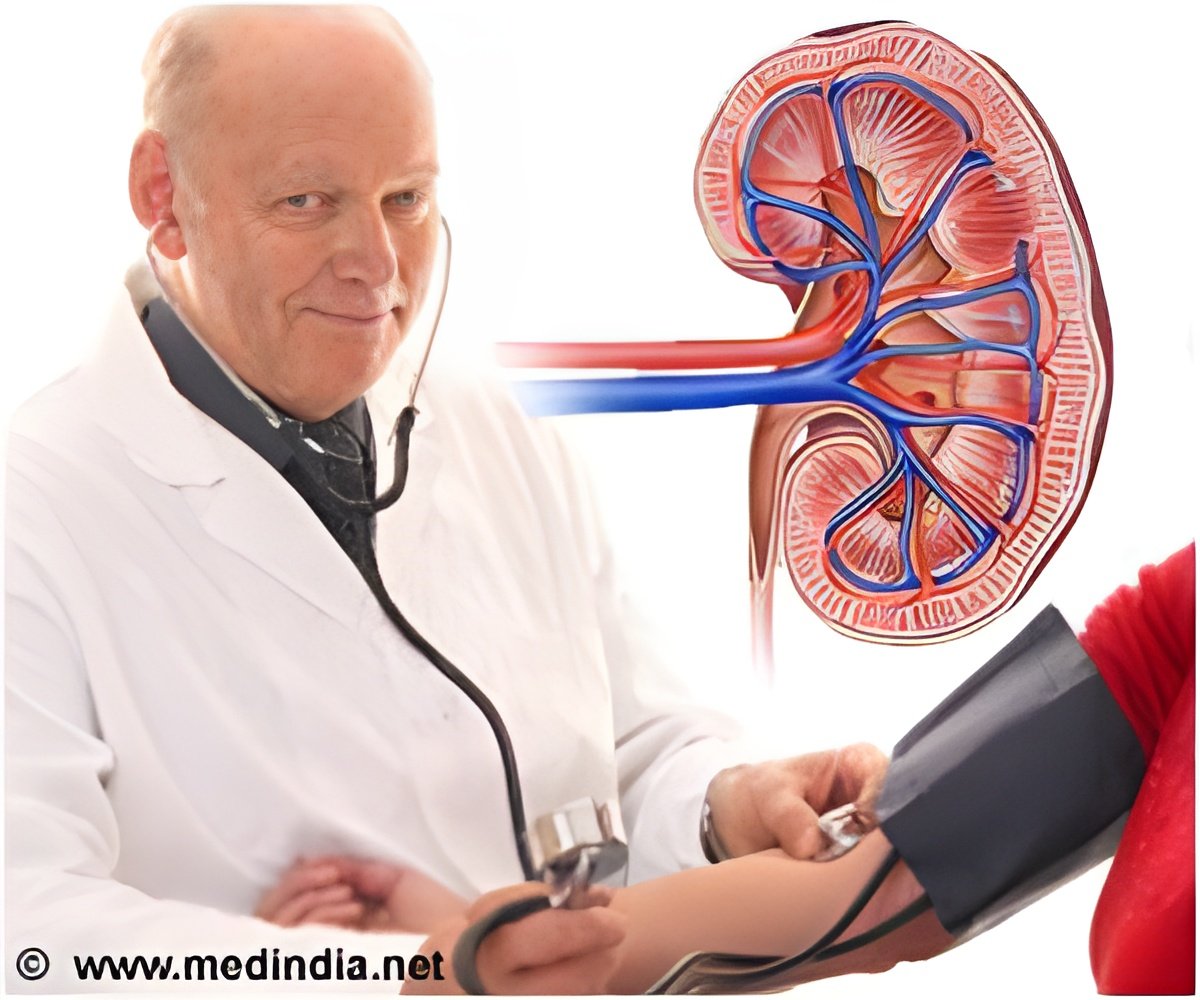For CKD Patients too-low Diastolic Blood Pressure Can be Deadly.
For CKD Patients too-low Diastolic Blood Pressure Can be Deadly.
Having too-low diastolic blood pressure (DBP) may be deadly for patients with chronic kidney disease (CKD). Blood pressure (BP) recommendations are stricter for patients with CKD than for the general population and focus on lowering actual BP (the measurement of both systolic BP [SBP] and DBP) without consideration for achieving a DBP that is too low. Researchers reviewed health records for 651,749 U.S. veterans with CKD to assess the association between BP and death. Both actual BP and measurements of SBP and DBP considered separately were assessed. The researchers found that having a systolic blood pressure of 130 to 159 mm Hg and diastolic blood pressure of 70 to 89 mm Hg was associated with the lowest risk for death. Patients with a DBP less than 70 mm Hg, regardless of their SBP, had higher mortality rates. An accompanying editorial highlights some of the limitations of the study. Among them, the authors suggest that it may not be BP combination but instead the characteristics of the persons with that combination that lead to greater mortality risk.
Note: For an embargoed PDF, please contact Megan Hanks or Angela Collom. To interview the lead author, please contact Willie Logan at
[email protected] or 901-577-7393.
2. Adding Tofacitinib to Treatment with DMARDs Improves Pain and Function in Patients with Active RA
Adding tofacitinib to treatment with disease-modifying anti-rheumatic drugs (DMARDs) may help improve symptoms in patients with active rheumatoid arthritis (RA). Nonbiologic DMARDs, including methotrexate, are commonly used to treat RA. However, DMARDs alone do not always adequately treat the disease. Tofacitinib is a novel, oral, Janus kinase inhibitor that treats RA. Researchers sought to determine the safety and efficacy of tofacitinib taken in combination with nonbiologic DMRDs. Patients with inadequately controlled RA (n = 792) despite treatment with nonbiologic DMARDs were randomly assigned to one of four twice-daily treatment sequences: 5 mg of tofacitinib; 10 mg of tofacitinib; placebo advanced to 5 mg of tofacitinib; or placebo advanced to 10 mg of tofacitinib. The study showed that when used in combination with various nonbiologic DMARDs, tofacitinib, 5 mg and 10 mg twice daily, compared with placebo, rapidly reduced the signs and symptoms of RA and improved physical function. Adverse events included decreases in neutrophil counts, increases in high- and low-density lipoprotein cholesterol level, and small increases in serum creatinine and aminotransaminase levels.
Note: For an embargoed PDF, please contact Megan Hanks or Angela Collom. For an interview, please contact Kim Bencker at
[email protected] or 484-865-6452.
Advertisement
3. Home-based Interventions Ease Depression in Elderly African Americans Advertisement
Home-based care interventions delivered by social workers can reduce depressive symptoms and enhance quality of life in older African Americans. Depression is common among older adults and African Americans are at greater risk than white persons for not receiving standard depression care or treatment. Improving access to depression care for this group is a public health concern. Researchers hypothesized that a home-based intervention could alleviate depressive symptoms and improve quality of life in older African Americans. The study authors worked with senior centers to recruit 208 older African Americans with depressive symptoms into the study. Most of the patients enrolled were unemployed and had multiple health conditions. The patients were randomly assigned to either 10 sessions of a home-based, multicomponent intervention delivered by a social worker or to a wait list. At four months, the patients in the intervention group reported improved mood and quality-of-life indicators, with gains sustained up to eight months. While the intervention proved effective, the authors suggest that sustainability may be an issue due to current reimbursement mechanisms. They also suggest a need to partner with primary care to boost treatment effects for patients with multiple and significant other health issues.
Source-Eurekalert
















